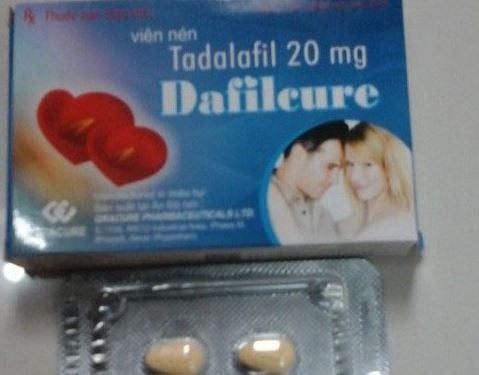This article is professionally consulted by Master, Doctor Lê Phúc Liên, a Urologist at the General Surgery Department, Vinmec Central Park International Hospital. Dr. Liên has over 12 years of experience in urology and advanced urological treatments.
Scrotal eczema is a common dermatological condition characterized by specific symptoms, but it is not yet recognized as a distinct disease. In scrotal eczema, the skin in the scrotal area often becomes thickened, red, scaly, and itchy due to irritation and allergic reactions. While symptom management is relatively straightforward, the condition frequently recurs, significantly affecting the quality of life.
1. What is scrotal eczema?
The skin structure of the scrotum and penis is looser compared to other areas, with many blood vessels, making it prone to swelling and redness during inflammatory or allergic reactions. This area is also frequently moist, facilitating conditions like contact dermatitis.
Eczema is a common dermatological condition that can occur at any age. While it is not life-threatening, it causes significant discomfort and is challenging to cure entirely.
Scrotal eczema is a form of eczema that occurs in the male genital area but has not been recognized as a distinct disease. It is often misunderstood or as other genital conditions such as gonorrhea or syphilis.
Symptoms of scrotal eczema include skin inflammation, blistering, itching, ulceration, redness, scaling, and peeling in the scrotal area. Severe cases can spread across the entire genital region, buttocks, and even cause pain.
This condition is prevalent in tropical climates. In Vietnam, scrotal eczema tends to flare up during the colder months. Being a sensitive condition, scrotal eczema causes significant discomfort and embarrassment for affected men, with itching and burning in the genital area being the most distressing symptoms.
Eczema is a common dermatological disease and can occur at any age. This is considered a non-life-threatening disease, but it brings many inconveniences and is difficult to treat definitively.
Eczema is also a form of eczema that occurs in the male genitals but has not been recognized as a separate disease. Because many people are confusing it with some other genital diseases that often occur in men such as gonorrhea, syphilis.
Scrotal eczema is a skin condition that is inflamed, blistered, itchy and may appear sores, red, scaly, peeling in the scrotum of the male genitals. When the disease is severe, it can spread all over the genitals, buttocks and cause pain for the patient.
This is a common disease in tropical climates. In Vietnam, when the weather turns to winter, eczema flares up the most. As a disease that occurs in a sensitive part, scrotal eczema brings a lot of discomfort and guilt to men. The burning pain, pain in the intimate area is always the biggest obsession for them.
2. Symptoms of scrotal eczema
Scrotal eczema arises from multiple factors, both internal and external. Symptoms depend on the pathogenesis of the disease. Persistent inflammation of the scrotal skin releases various chemical mediators and protein-degrading substances, causing itching. Scratching and mechanical irritation exacerbate the inflammation, thickening the skin and intensifying the itch. This pathological cycle continues, making the scrotal skin red and thickened, resembling leather. The itching often feels burning. The compromised skin barrier increases permeability, allowing allergens and irritants to penetrate more easily.
3. Causes of the disease

The causes of scrotal eczema are complex and difficult to determine. According to dermatologists, scrotal eczema may be related to the following factors:
- Due to certain allergens and skin irritants, including dyes in clothing, soap detergents, laundry detergents, and latex condoms.
- Due to environmental pollution, and certain occupations that frequently involve exposure to harmful substances for the skin, such as petroleum, paint, and sanitation work.
- Due to underlying medical conditions such as psoriasis, diabetes, kidney failure, skin infections, and HIV.
- Due to a deficiency of certain essential micronutrients in the body, particularly zinc deficiency.
- A family history of atopic dermatitis or eczema is also a contributing factor to scrotal eczema in subsequent generations.
4. Is scrotal eczema dangerous?
There are many different types of eczema, each classified and assessed based on its severity. Typically, eczema is considered a chronic condition, meaning treatment requires a long-term approach and is very difficult to completely cure. However, treating the symptoms of eczema to alleviate discomfort and prevent recurrence is currently regarded as the most effective method of management.
It is important to clarify that scrotal eczema is not a contagious disease. It cannot be transmitted from person to person but may worsen or improve depending on the individual. However, in cases of scrotal eczema complicated by bacterial or yeast infections, the risk of infection can occur due to the transmission of bacteria on the skin.
Patients should see a doctor if:
- The symptoms of scrotal eczema affect sleep or daily activities.
- The signs of scrotal eczema become increasingly severe.
- The time between episodes of itching and redness becomes shorter.
- Scrotal eczema spreads to other areas of the body.
- High fever or signs of infection appear
If you have any concerns about your health or notice any unusual skin conditions, do not hesitate to arrange to see a dermatologist immediately. Eczema puts people at higher risk of developing staphylococcal infections, which can pose many other health risks.
5. Consequences of untreated scrotal eczema

When suffering from scrotal eczema, it inevitably affects the testicles due to the very thin skin of the scrotum. The most common complication is orchitis (inflammation of the testicles), which can reduce sperm quality or even lead to a complete absence of sperm in men.
In cases where scrotal eczema is caused by fungal or bacterial infections and is not treated promptly, it can result in localized chronic eczema, causing the condition to persist for a long time.
Although this condition may not manifest visibly, it has a significant impact on the patient’s mental health.
6. Prevent scrotal eczema from starting and progressing in a bad direction

Patients should pay attention to the following care practices and lifestyle changes to prevent the recurrence of scrotal eczema:
- Choose loose, breathable clothing. It is best to select fabrics made from cotton. Underwear should be stretchy and comfortable, allowing proper ventilation. Clothes should be dried under sunlight.
- Avoid scratching the itch, as it can increase the risk of infection.
- Trim nails and keep them clean and tidy.
- Avoid contact with allergens. If allergic to weather changes, limit exposure to temperature fluctuations. Use a humidifier or air conditioner to balance the outdoor temperature with that of the workplace or bedroom.
- Avoid excessive sweating and prevent dry skin in winter, as both can exacerbate scrotal eczema.
- Use moisturizers or natural emollients regularly to maintain hydration and prevent dry skin.
- Avoid harsh soaps and scented detergents.
- Maintain regular hygiene by washing hands and body frequently.
- Stay positive and stress-free. Engage in activities like meditation or yoga to balance mental well-being while also improving skin and body health.
- Practice healthy sexual habits with a moderate frequency.
- Patients should also be mindful of factors that can worsen scrotal eczema, such as spermicides, latex condoms, perfumes, cosmetics, food, or contaminated water.
If unusual symptoms appear in the male genital area, you should visit a reputable medical facility for timely examination and treatment. Vinmec International Hospital is a high-quality healthcare provider in Vietnam. Equipped with state-of-the-art medical equipment imported from the United States, Japan, and the Netherlands, Vinmec ensures fast and effective diagnosis and treatment. Our octors are highly qualified, experienced, and trained overseas.
If you wish to seek consultation and examination at any Vinmec Hospital within the nationwide healthcare system, please schedule an appointment on their website for assistance.
Please dial HOTLINE for more information or register for an appointment HERE. Download MyVinmec app to make appointments faster and to manage your bookings easily.













